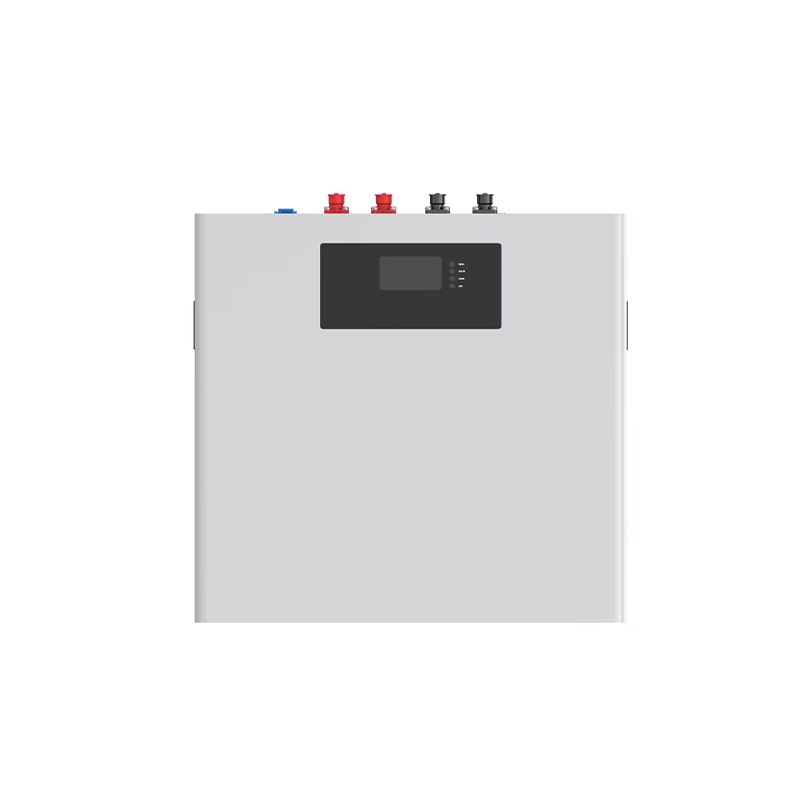How to Choose the Right 76.8V Electric Motorcycle Battery for Your Needs
How to Choose the Right 76.8V Electric Motorcycle Battery for Your Needs
Table of Contents
Understanding Electric Motorcycle Batteries
The Importance of Voltage in Electric Motorcycles
Different Types of 76.8V Electric Motorcycle Batteries
Battery Capacity and Range Considerations
Lifecycle and Performance of Batteries
Charging Options for 76.8V Batteries
2025-08-28

How to Choose the Right 76.8V Electric Motorcycle Battery for Your Needs
Table of Contents
- Understanding Electric Motorcycle Batteries
- The Importance of Voltage in Electric Motorcycles
- Different Types of 76.8V Electric Motorcycle Batteries
- Battery Capacity and Range Considerations
- Lifecycle and Performance of Batteries
- Charging Options for 76.8V Batteries
- Budgeting for Your Electric Motorcycle Battery
- Safety Considerations When Choosing a Battery
- Frequently Asked Questions
- Conclusion
Understanding Electric Motorcycle Batteries
When it comes to electric motorcycles, the battery is arguably one of the most crucial components. Not only does it power your bike, but it also determines the overall performance, range, and reliability of your ride. A **76.8V electric motorcycle battery** is designed specifically for high-performance electric motorcycles, optimizing both power output and energy efficiency.
Electric motorcycle batteries come in various configurations and technologies, but understanding the fundamental aspects of battery operation is essential for any prospective owner.
The Importance of Voltage in Electric Motorcycles
Voltage plays a critical role in the performance of an electric motorcycle. A **76.8V battery** is higher than many standard electric bike batteries, providing more power, which translates into higher speeds and better acceleration. This higher voltage can also support more sophisticated electrical systems, enhancing features such as regenerative braking, advanced instrumentation, and lighting.
When you choose a battery with the proper voltage, you ensure that your electric motorcycle can perform optimally under various conditions. Understanding the relationship between voltage and performance can significantly influence your riding experience.
Different Types of 76.8V Electric Motorcycle Batteries
Electric motorcycle batteries primarily fall into three categories:
Lithium-Ion Batteries
Lithium-ion batteries are the most common choice for electric motorcycles today. Known for their high energy density, lightweight design, and long lifecycle, they offer superior performance compared to older battery technologies. They are ideal for riders looking for efficient, long-lasting power.
Lead-Acid Batteries
While lead-acid batteries are often less expensive, they tend to be heavier and have a shorter lifespan. They can be a reasonable option for budget-conscious buyers or those who do not require extensive range or performance.
Lithium Iron Phosphate (LiFePO4) Batteries
LiFePO4 batteries offer unique advantages such as greater thermal stability and safety. They are also known for longer lifecycle performance, making them a viable alternative for high-performance electric motorcycles.
Choosing the right type of battery will depend on your specific needs and how you plan to use your electric motorcycle.
Battery Capacity and Range Considerations
Battery capacity, typically measured in amp-hours (Ah), directly affects how far your electric motorcycle can go on a single charge. A **76.8V battery** with a higher amp-hour rating can provide a more extended range, which is crucial for long-distance rides.
When selecting a battery, consider your typical riding distance. If you plan on making longer trips, opt for a **high-capacity battery** that allows for extended range. Conversely, if your rides are short and local, a smaller capacity may suffice.
Lifecycle and Performance of Batteries
The lifecycle of a battery refers to the number of charge-discharge cycles it can undergo before its capacity significantly degrades. Lithium-ion batteries typically offer more charge cycles compared to lead-acid batteries.
Understanding the performance metrics of a battery also entails looking at factors such as:
- **Discharge Rate:** How quickly power is drawn from the battery.
- **Charge Time:** How long it takes to fully charge the battery.
- **Temperature Sensitivity:** The battery's performance under extreme conditions.
These factors significantly influence not only your riding experience but also the maintenance and longevity of your battery.
Charging Options for 76.8V Batteries
Charging options for your **76.8V electric motorcycle battery** can vary significantly. Consider the following:
Standard Chargers
These are typically included with your motorcycle and are best suited for home charging. They can take several hours to fully charge the battery.
Fast Chargers
For those who are always on the go, fast chargers can dramatically reduce charging time, allowing you to get back on the road quickly. However, they can also be more expensive and may require specific electrical installations.
Solar Charging Options
For the environmentally conscious rider, solar charging systems can be integrated to recharge your battery using renewable energy, making it a sustainable option for long-term use.
Understanding your charging needs will help you choose the most efficient and convenient option for your electric motorcycle battery.
Budgeting for Your Electric Motorcycle Battery
Prices for **76.8V electric motorcycle batteries** can vary widely depending on brand, technology, and capacity. When budgeting, it's essential to consider not just the upfront cost but also the long-term value:
- **Initial Cost:** This includes the price of the battery and any necessary accessories or installation costs.
- **Maintenance Costs:** Some batteries require more maintenance than others, impacting your overall expenditure.
- **Replacement Frequency:** Understanding the lifecycle of your battery can help you predict when you may need to budget for a replacement.
Allocating your budget wisely can lead to better performance and longer-lasting satisfaction with your electric motorcycle.
Safety Considerations When Choosing a Battery
Safety should always be a primary concern when selecting a battery for your electric motorcycle. Here are some key considerations:
Quality of Manufacturing
Always choose batteries from reputable manufacturers. Inferior batteries can lead to hazardous situations, including overheating or even fires.
Battery Management Systems (BMS)
A robust BMS can help monitor the battery's health, manage charging cycles, and protect against overcharging. Ensuring your battery includes a reliable BMS is crucial for long-term safety.
Proper Installation
Ensure professional installation, especially for high-voltage systems. Incorrect installation can lead to performance issues and safety risks.
Considering these safety factors will help ensure your electric motorcycle provides not just performance, but peace of mind.
Frequently Asked Questions
1. What is the average lifespan of a 76.8V electric motorcycle battery?
The average lifespan of a lithium-ion battery can range from 3 to 8 years, depending on usage and care.
2. Can I replace my 76.8V battery with a different voltage?
No, it is not advisable to replace a 76.8V battery with one of a different voltage, as it can lead to performance issues and damage to your motorcycle.
3. How long does it take to charge a 76.8V electric motorcycle battery?
Charging times can vary based on the charger type, but standard chargers can take 4-8 hours, while fast chargers may reduce this time significantly.
4. Is it safe to use fast chargers for my 76.8V battery?
Yes, as long as the fast charger is compatible with your battery and is from a reputable manufacturer. Always follow the manufacturer's guidelines.
5. What should I do if my battery is not holding a charge?
If your battery is not holding a charge, check the connections and inspect for damage. If issues persist, consider contacting a professional for further evaluation.
Conclusion
Choosing the right **76.8V electric motorcycle battery** involves understanding your specific needs, the type of battery that best suits those needs, and how it integrates with your motorcycle's performance. By considering factors such as battery type, capacity, lifecycle, and safety, you can make an informed decision that enhances your riding experience. Investing time and effort into selecting the perfect battery will not only improve your performance on the road but will also ensure safety and longevity, allowing you to enjoy the thrill of electric motorcycle riding for years to come.
Key words:
Related News


